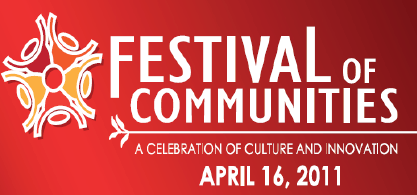Location
University of Nevada, Las Vegas
Start Date
16-4-2011 2:00 PM
End Date
16-4-2011 3:30 PM
Description
HIV is a sexually transmitted disease that develops into AIDS. There is no cure for it, only treatment. In this poster, we look at the pros and cons of disclosing this type of information. People who decide to disclose their HIV status may have various reasons for doing so, but most do it for emotional support and for prevention of spreading the disease. Those who decide to keep it private primarily do it to not face rejection, discrimination, degradation, and loss of respect. (Petronio Page 72) The problem with creating a public database is that many organizations are against the idea of disclosing personal information. Through documents as old as the Constitution, government officials have deemed a public database to be unethical. It confronts with individuals’ basic rights. Others still argue that creating such a database would lower the spread of HIV, saving hundreds of lives. The balance between patient’s privacy and the well-being of society has yet to be found. We want to prevent the spreading of AIDS, so disclosure should be mandatory. By knowing who has the disease the chances of spreading it become minimal. In exchange, patients should be treated just as any other person.
Keywords
HIV-positive persons; Medical records – Access control; Privacy; Right of
Disciplines
Bioethics and Medical Ethics | Health Policy | Immune System Diseases | Public Affairs | Public Health | Public Policy | Virus Diseases
Language
English
Included in
Bioethics and Medical Ethics Commons, Health Policy Commons, Immune System Diseases Commons, Public Affairs Commons, Public Health Commons, Public Policy Commons, Virus Diseases Commons
AIDS/HIV denialism: Patients’ privacy rights
University of Nevada, Las Vegas
HIV is a sexually transmitted disease that develops into AIDS. There is no cure for it, only treatment. In this poster, we look at the pros and cons of disclosing this type of information. People who decide to disclose their HIV status may have various reasons for doing so, but most do it for emotional support and for prevention of spreading the disease. Those who decide to keep it private primarily do it to not face rejection, discrimination, degradation, and loss of respect. (Petronio Page 72) The problem with creating a public database is that many organizations are against the idea of disclosing personal information. Through documents as old as the Constitution, government officials have deemed a public database to be unethical. It confronts with individuals’ basic rights. Others still argue that creating such a database would lower the spread of HIV, saving hundreds of lives. The balance between patient’s privacy and the well-being of society has yet to be found. We want to prevent the spreading of AIDS, so disclosure should be mandatory. By knowing who has the disease the chances of spreading it become minimal. In exchange, patients should be treated just as any other person.

